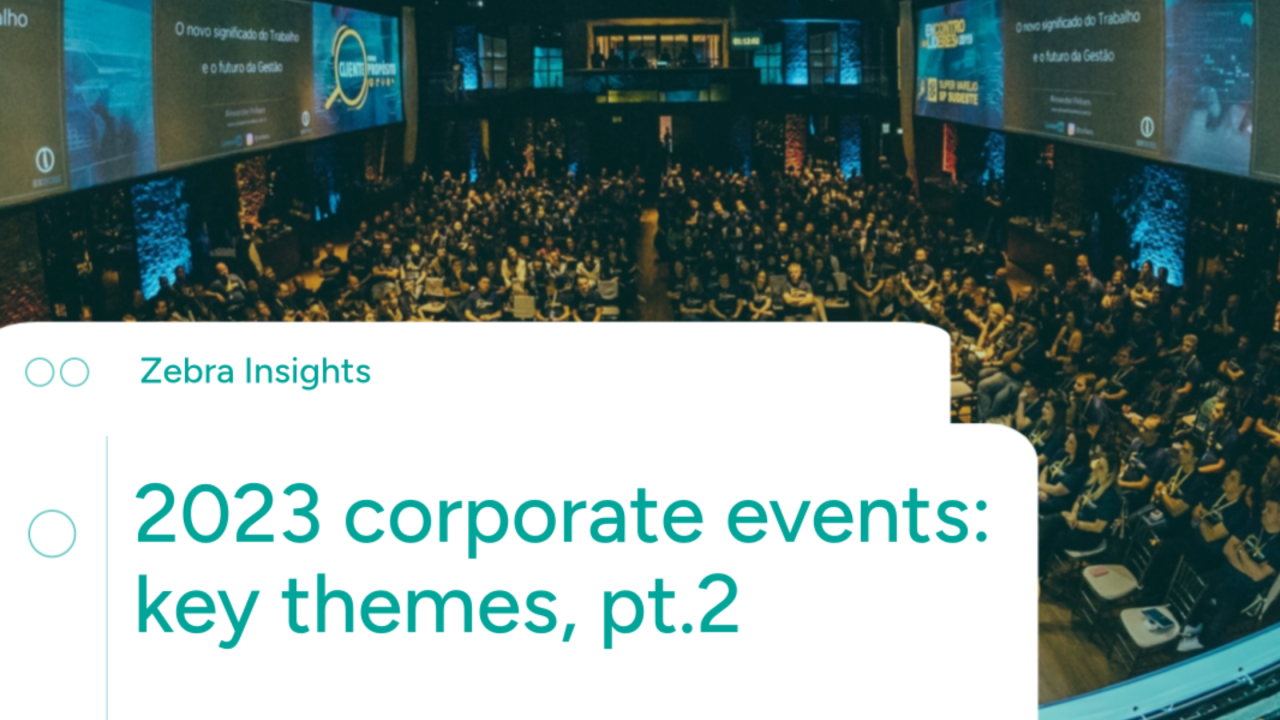Looking ahead to 2023, we’re already predicting a number of key themes for corporate events. In Part 2 of this series, let’s explore other trends that are sure to shape the coming years.
Environment & Sustainability
The environment and sustainability has been on the agenda of governments, banks and corporations across the world for many years now. COP27 was a stark reminder of how fast climate change is occurring, however, the long-term outlook remains optimistic. To demonstrate the progress made thus far:
- According to HolonIQ, as of 2 January 2023, there are 83 Climate Tech Unicorns around the world who are now collectively valued at $180 billion +.
- Globally, there was $226 billion of new investment in renewable energy in 1H 2022, an all time high for a first half, with China leading the way. The surge was driven by increased investment in renewable energy projects, venture capital and private equity funding.
- The sustainability movement has also been embraced by 13,000 companies across Europe – with them actively transforming their operations to be more environmentally friendly.
In the world facing an increasing number of complex, intertwined issues, now truly is the time for global cooperation and effective solutions. Corporate events that focus on this topic allow organizations to ensure their practices and investments align with the industry’s evolving sustainability goals. By inviting respected industry professionals as speakers to your event, you can motivate and empower attendees while working towards shared objectives.
From biotechnology to bioeconomy
You may have heard the term “bioeconomy” before, but what exactly is it? The bioeconomy is based on the use of biological processes to make use of things that we consume and manufacture. This can be anything from using enzymes to clean up oil spills to developing new antibiotics. Advances in essentially molecular biology—including DNA sequencing, gene editing, and synthetic biology—plus advances in AI have allowed us to do new techniques and grow new things.
These activities and many other exciting innovations form the basis of the bioeconomy—economic activity driven by the life sciences, biotechnology, and contributing advances in engineering, computing, and information sciences. The global bioeconomy was valued at $4.7 trillion in 2015 and is expected to grow to $8 trillion by 2025.
For the last 100 to 150 years, humanity has combined physical and chemical technologies to accelerate the economy and the quality of life for people around the world. The bioeconomy’s potential impact reaches far beyond healthcare and agriculture – it promises to revolutionize industries at large by driving new inventions that will provide sustainable solutions to some of the world’s most pressing problems. For example, synthetic biology can be used to engineer bacteria that can eat plastic pollution or speed up the development of a new breakthrough vaccine.
As major powers race ahead at top speed in the biosciences field, now more than ever we need insights from experienced industry players who can guide audiences on navigating this new realm successfully. With these steps forward taken today and even greater progress yet to come tomorrow—the time is nigh for embracing the expanding global bioeconomy.
Energy transition
After Europe’s energy chaos in 2022, the world is set to undergo a major energy transition. This will have far-reaching implications for countries and businesses across the globe, as well as for individuals. Advances in technology, such as renewable energy sources like solar and wind power, are making sustainable solutions more viable. As a result, governments and companies have shown an increased commitment to investing in green energy sources.
The financial industry is no exception to this trend. Investors are shifting their focus towards sustainable solutions with banks which have also become more willing to offer specialized financing for renewable energy projects, helping businesses transition to greener solutions without sacrificing profitability.
Perhaps one of the most innovative trends to touch upon in the new energy sector is the fusion energy, which is gaining momentum as an attractive alternative to traditional sources of electricity production. Our sun, and all of its stellar peers across the universe are driven by nuclear fusion – a reaction that holds great potential to deliver unlimited clean energy right here on Earth. If this powerful process can be harnessed and replicated in our world, it has the capacity to provide us with an inexhaustible source of safe yet inexpensive power for generations.
Private organizations in the US, China and Europe are pushing the boundaries with their research and development, yielding groundbreaking progress that could soon lead to commercially viable power plants made possible by this revolutionary technology.
As we move into 2023, it’s clear that the energy transition is unavoidable. To stay ahead of this trend, it’s important to obtain insights directly from industry leaders and professionals who understand the implications of transitioning to a green economy. These insights can help businesses make informed decisions about how best to move forward with green initiatives and investments in renewable energy sources. With these resources and insights in hand, businesses can ensure their success and sustainability in the years to come.


